5 Ideas From 5 Books To Make You More Goal-Oriented
And how you can apply them

5 Ideas From 5 Books to Make You More Goal-Oriented
And how you can apply them
I used to think reading non-fiction was stressful. The fear of missing out on something potentially important was so strong that I was obsessed with highlighting every point. I also made notes, wrote down my thoughts about what I learned, and obsessively stored quotes on Goodreads.
This was interesting at first, but after a while, got so exhausting, that I couldn’t even bring myself to finish the book.
This was the primary reason I never read too much non-fiction.
This changed in late 2019 when I came to the understanding that it’s not possible to remember every single thing you learned from a book. The best you can do is keep a note of the points that stick out to you and make conscious efforts to apply them to your life.
Once I let go of this obsessive need to remember every single thing, reading non-fiction became easier. I told myself there was no need to stress, and if I remembered just ONE lesson from each book I read, it was enough.
As a result, I read a lot of non-fiction books in the past year. They have opened my mind and made me more goal-oriented. In this post, I want to discuss five key lessons from five of the best books I read last year. I would also like to outline the most actionable takeaways from each book, so you can apply them to your life and become more goal-oriented.
Question Everything
I learned this lesson from Surely You’re Joking, Mr. Feynman — the memoir of the American theoretical physicist and winner of the 1965 Nobel Prize for Physics, Richard P Feynman.
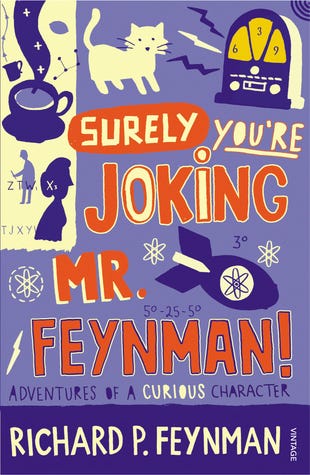
In the book, Feynman talks about his adventures as a child where he taught himself to repair radios, and when he goes to college and beyond. The most fascinating trait I found in Feynman was his ever-burning curiosity to learn new things and acquire new skills.
For someone with his level of accomplishments, this brilliant man never stopped trying to upgrade his skillset and ask questions whenever he had the smallest of doubts.
Would you believe this scientist who helped create the atomic bomb was also a master safecracker and a skilled player of the frigideira — a Brazilian percussion instrument?
“I would rather have questions that can’t be answered than answers that can’t be questioned.”
— Richard P Feynman
How you can apply this
Make curiosity a part of your life. Whenever you come across a theory in a book or proposed by an elder, ask yourself why that’s possible. Asking questions will help you understand the core concepts better and gain more in-depth knowledge of the subject at hand.
However, even after you uncover the answers, understand that nature is constantly evolving. It is inevitable that your knowledge will be obsolete soon. Be open to conflicting opinions and do not shut down someone who speaks something contrary to your beliefs.
Cold Logic Can Be Your Saviour
I learned how cold logic can be applied to every mundane situation from the book Sapiens: A Brief History of Humankind by Yuval Noah Harari. This helped declutter my mind and free up space for creative pursuits.
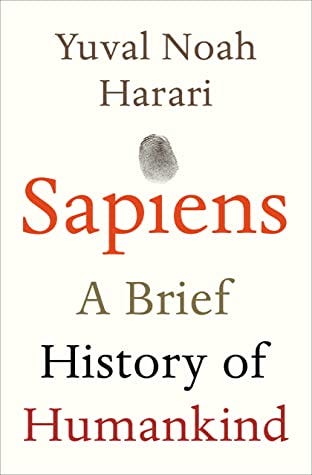
This is a brilliant, well-researched book tracing the history of humankind from our foraging ancestors to the current generation of humans who build supercomputers and smart cities. The author does a brilliant job of dissecting our origins and analysing why we behave the way we do. There are clear ties and links to show how seemingly “millennial” problems like craving for sugary food or being unable to be faithful to your partner aren’t, in truth, new at all. Ancient homo sapiens have been facing the same problems and our reaction to them is imprinted in our DNA.
This book taught me that every human behaviour we are familiar with today has its roots in the fight-or-flight response of our ancestors. For example:
- Ancient homo sapiens were hunter-gatherers and also very weak. They didn’t have sharp claws to win in a fight against their stronger competitors like apes or predators like tigers. Whenever they came across something sweet (like a fruit), they had to gobble everything up quickly, lest another stronger animal comes close, and robs them of their treasure. The need to eat as much sweet food in as little time as possible is programmed into our DNA. This is why humans find themselves unable to control themselves once they start munching on something sweet.
- Our nomadic ancestors were not monogamous and the concept of a “family” did not exist. They moved around in groups from one place to another. When a woman in the “pack” or “tribe” got pregnant, she had no way of knowing who the father was (or even, if there was a single father or several). It was believed that if she slept with as many men as she could, the desirable traits of all these men would be inherited by her baby. This polygamous nature is imprinted in our DNA and this could be the possible reason why so many people find it hard to stay loyal to their partners after marriage.
Even the concept of happiness can be tackled with cold logic. If you break it down to merely the interplay of chemicals in your brain, you will stop holding so much value to it.
“Happiness does not really depend on objective conditions of either wealth, health or even community. Rather, it depends on the correlation between objective conditions and subjective expectations.”
— Yuval Noah Harari
How you can apply this
Nearly every behavioural trait of every person around you can be traced back to their origins. All you need is a little bit of logic and you can read into the behaviour of a person like an expert.
The next time you’re arguing with someone and feel an insatiable need to prove yourself right, understand that this comes from the innate need to fight and prove yourself the “Alpha” of the pack. The moment you realise that the other person probably wants the same and that’s why they are arguing so hard, you may no longer feel compelled to continue. Thus, you will save precious time you can now use to pursue your goals.
When you feel anxious or stressed, understand that this is just a response of your body and it’s telling you you’ve probably bitten off more than you can chew.
Once you let go of emotions and look at every scenario with cold logic, you will be surprised at how simple it becomes to deal with problematic situations.
The key is to detach emotion and examine the problem objectively.
Choose Yourself Before Everyone Else
No one will come to your aid when you’re down. You have to pick yourself up and build a bright, new world out of the wreckage of the old. You have to choose yourself. I learned this lesson from the book Choose Yourself by James Altucher.
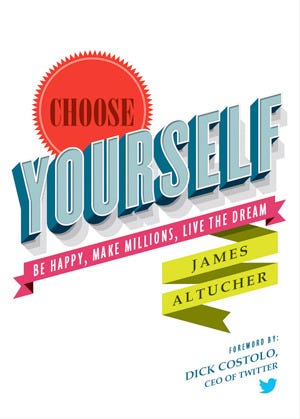
This book lays out a clear, actionable way how to always prioritise yourself and live your dreams. And I’m not exaggerating when I say, but this is exactly what the book delivers. The author’s friendly, conversational tone draws you in right from the first chapter and helps you believe that no matter how high the odds seem to be stacked against you, you are the only one with the power to change your destiny. You CAN do it.
All you need to do is keep working on yourself and keep pulling yourself back to your feet no matter how hard the world pushes you down.
“The only truly safe thing you can do is to try over and over again. To go for it, to get rejected, to repeat, to strive, to wish. Without rejection there is no frontier, there is no passion, and there is no magic.”
— James Altucher
How you can apply this
Work on yourself and your skills. Make yourself so awesome that even the most successful people can’t help but notice you.
But before you do that, you have to believe that you are worth it. Let go of the self-doubt and stop worrying about things that aren’t in your control. Even if you get rejected, analyse what didn’t work in your favour and focus on how you can make sure such a thing never repeats again.
Someone Else’s Success Isn’t Your Failure
I learned this invaluable lesson from Jen Sincero’s brilliant book, You Are a Badass: How to Stop Doubting Your Greatness and Start Living an Awesome Life.
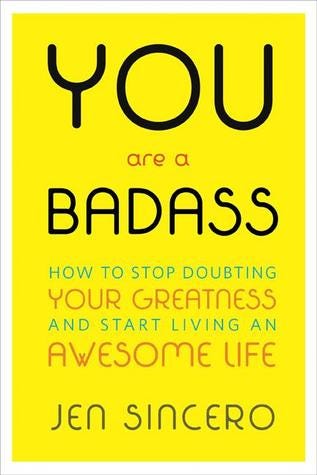
I am not proud to admit this, but there was a time I used to resent successful people. I filled my head with toxic thoughts like, “How did she achieve all that? I’m more talented than her, I should be the one with her laurels.”
But this wonderful book by Jen Sincero forced me to rethink my values and welcome the “abundance mindset”, rather than the “scarcity mindset”.
It is important to remember that your success is not dependant on other people’s failures. There is enough room at the top for as many people who work hard to reach there. Just because someone made it before you does not mean you are destined to fail.
“Gratitude is one of the strongest and most transformative states of being. It shifts your perspective from lack to abundance and allows you to focus on the good in your life, which in turn pulls more goodness into your reality.”
— Jen Sincero
How you can apply this
An important way to channel your inner badass is to learn to be grateful for what you have, rather than resenting others for everything they have. You don’t know the story of their struggles and you cannot claim that they had it easy.
Focus on making the best of what is handed out to you and stop letting other people’s success or failure affect you.
Don’t Wait For Inspiration to Act
Ideas come to those who actively work to make big things happen. If you’re not actively creating something, you’re destroying your potential and not giving your creativity the respect it deserves. I learned this concept from the book Big Magic by Elizabeth Gilbert.
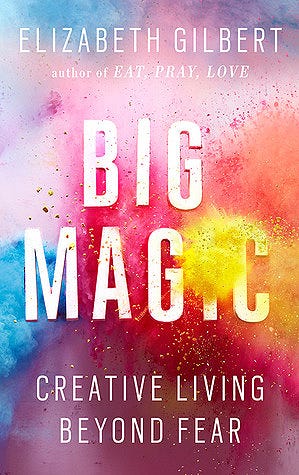
Along with plants and animals, the author puts forward the notion that the planet is also inhabited by a disembodied, energetic life-form, ideas. Ideas are sentient. They roam around the world in search of the perfect candidate. The moment an idea chooses you and enters you, you have that “Eureka” moment.
But ideas are also whimsical and impatient. If you don’t start working on them right away, they will leave you and go away in search of the next deserving candidate. Maybe you have experienced a sensation that when you finally sit down to work on an amazing idea you had a few months ago, you are no longer motivated, and no matter how hard you try, you cannot summon the energy to get it to work? That’s the moment the idea left you. It won’t come back again.
“Ideas are driven by a single impulse: to be made manifest.”
— Liz Gilbert
How you can apply this
The moment a brilliant idea comes to you, start working on it right away. If you don’t have the time or space to start immediately, you can at least write out the action steps or outline it in your journal. If you don’t treat ideas with the respect they deserve, they will leave you forever.
But since ideas are so whimsical, how do you make them come to you? Simple: you work on yourself. You do what you know your heart longs for, and you do it without expectation. The more you work on yourself and hone your skills, the more worthy the ideas will think you are, and the more easily they will come to you.
Don’t wait for inspiration to start creating. Start today!


For book reviews and recommendations, follow me on Goodreads.
Join my email list to get a thought-provoking story for FREE every week!
